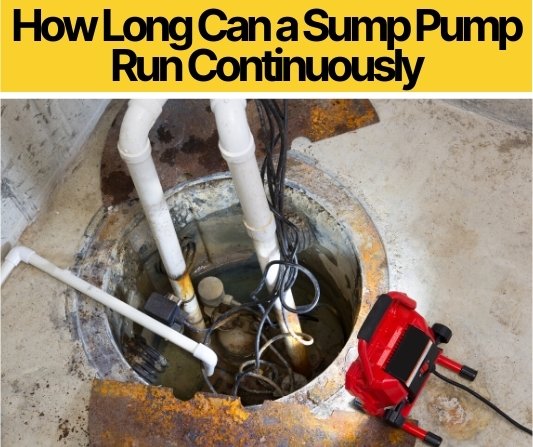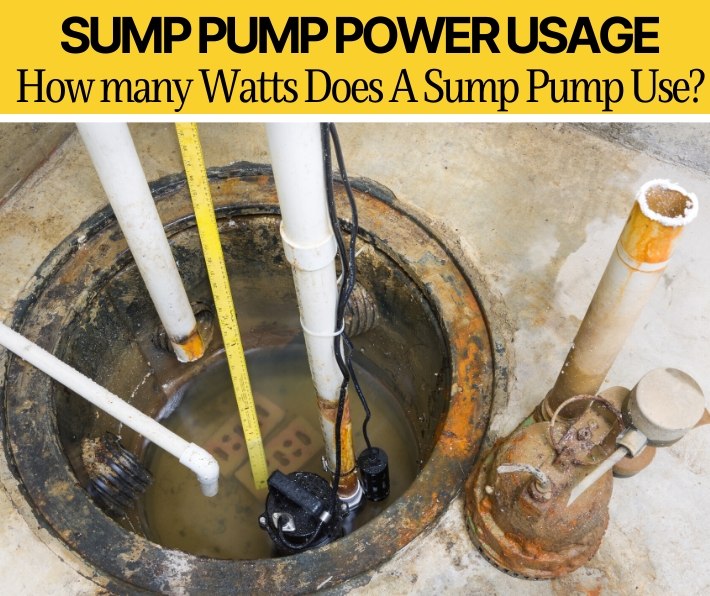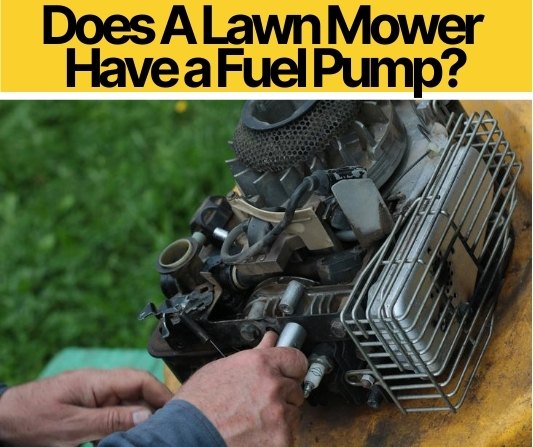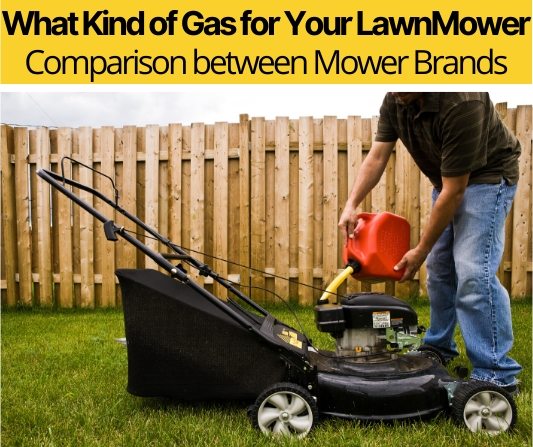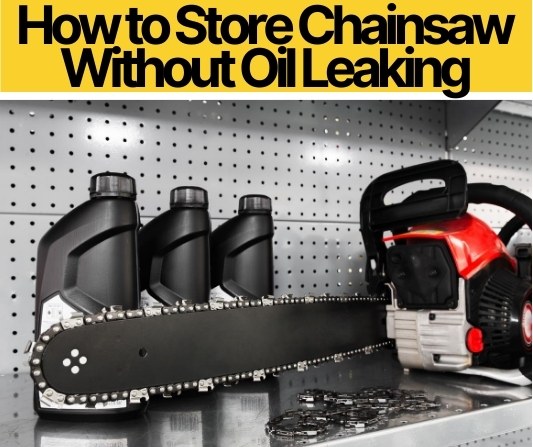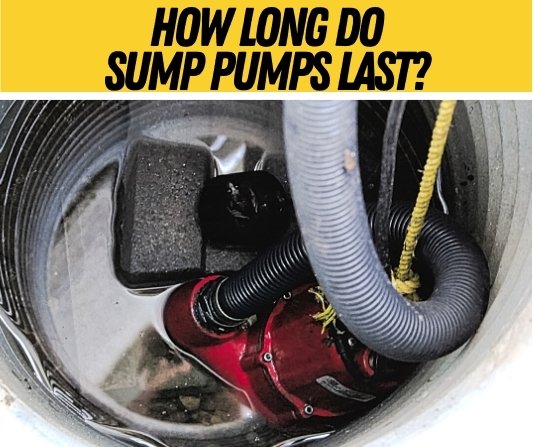 If you’re living anywhere where there is a higher risk of flood… you can’t afford to ignore or gloss over the question, How long do sump pumps last?
If you’re living anywhere where there is a higher risk of flood… you can’t afford to ignore or gloss over the question, How long do sump pumps last?
You need that information so you can adequately prepare and avoid the nasty surprise of a flooded basement (and home) in spring thaw or during heavy rainfall.
In this article, I’ll show you all you need to know about the average lifespan of sump pumps & I’ll also review a few of the best brands.
How Long Do Sump Pumps Last?
Sump pumps usually last for 6 to 10 years and run an average of ~100, 000 cycles before they might need to be replaced. Most sump pumps come with a 3-5 year warranty, but usually, they outlast their warranty by a few years.
Regardless, you should still keep an eye on the performance of your sump pump so you know if it’s time to consider replacing it. It’s always easier and far cheaper to replace a weakening sump pump than to repair a damaged basement.
The type of sump pump you use and how well you maintain it, also help determine how long your pump will last. New and the more experienced homeowners, especially those living in high-risk areas (which is almost everywhere) have a justified cause for concern about how long the sump pump installed in their basements will last.
If you live in an area that is prone to heavy rainfalls, hurricanes, or places where the water table is high you’re top on the list of “Most Likely to fight Flooded Basements!” .
Rapid melting of snow can also cause flooded basements. So, if you live in an area that is prone to fast-melting snow, you’ll need to pay close attention to this article.
How Many Cycles Does a Sump Pump Last?
According to RichTech Industries, most sump pumps last for an average of 100, 000 cycles. A sump pump cycle starts when the sump pump turns on automatically by high water levels in the sump basin. The water is then pumped out of the basin completing the cycle.
Read More: How Long Can a Sump Pump Run Continuously
How Many Years Should a Sump Pump Last?
Sump pumps typically last for between 6 to 10 years. Exactly how long a sump pump will last depends on how often it is used to pump water away from the sump pit. How often your sump pump runs is also called the pump cycle.
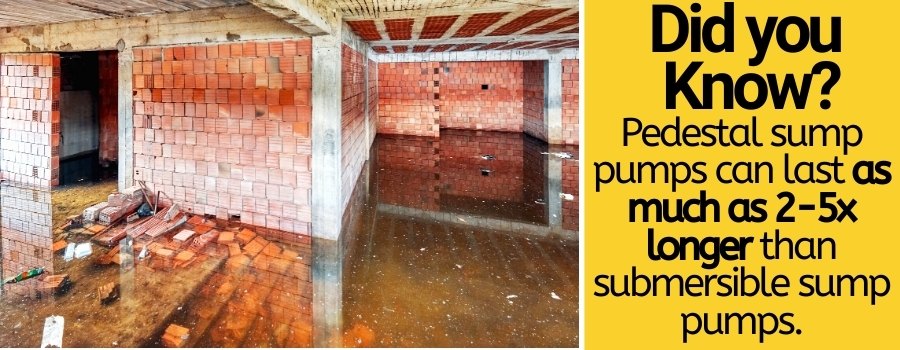
How Often Should Sump Pumps be Replaced?
There is no definitive guide on when you should replace your sump pump. Some pumps work well and last for as much as ten years or more. The best advice is to consider replacing your sump pump between 7 to 10 years of installation.
Very often, the best time to replace a faulty sump pump is when it is close to the end of its life and develops recurring faults.
Some of these faults can be easily fixed by a licensed plumber, like failed check valves for example. On the other hand, it is usually more economical to replace the sump pump when you’re dealing with other pump problems.
Sump Pump Service Life & How often sump pumps need to be serviced.
Sump pumps are mechanical devices, and like any mechanical device they might fail occasionally or they may not perform optimally. This is true especially if your sump pump runs fairly constantly, once in a long while or if you’re expecting heavy rainfall.
Proper maintenance and regular inspection is one way you can help make sure that your sump pump lasts. How often should you service or maintain your sump pump?
The standard is every 3-4 months. Some experts will even recommend servicing your sump pump every 2 months. At the very least you should service your sump pump once a year.
Read Also: Why Are Sump Pumps Running in Winter
How Often do Sump Pumps Fail
How often sump pumps fail depends on a lot of different factors including how much work it has been doing, and if it is the right size and was installed properly or is properly maintained. Sump pumps that are the end of their life around 7 – 10 years are also more likely to fail.
Signs of a failing sump pump
Like all machines, sump pumps get old, wear out or just stop working. If you notice any of these signs, you should begin to seriously consider replacing your sump pump. Knowing when to replace or repair your sump pump can save you thousands of dollars in the costs of repairing a damaged basement.
Your sump pump is probably failing (or close to) when you begin to notice that:
- Your sump pump is constantly cycling (turning) on and off
- Your sump pump runs constantly with no reason
- Your sump pump is running but failing to remove water
- Your sump pump is taking too long to remove water
- Your sump pump begins to make a lot of noise
- Your sump pump vibrates too much when it is running
- Your sump pump is beginning to rust
Different types of sump pumps
There are two major types of sump pumps and they both have their pros and cons. The two major types of sump pumps are:
1.Pedestal Sump Pumps
As the name suggests, pedestal sump pumps are mounted on pedestals above the sump pit. When water collects in the sump pit, a float activates the pump and it draws the water up and out of the sump, protecting your basement from flooding.
Pedestal sump pumps are a good choice if the cost is something you’re concerned about. They are generally cheaper. They are also easier to install and maintain. The major drawback is that they are not as efficient as submersible sump pumps.
2. Submersible Sump Pumps
Submersible sump pumps are installed directly into the sump pit. They’re more powerful, and a bit more expensive compared to pedestal sump pumps.
Submersible sump pumps are also more efficient. Because they’re installed directly into the sump, the pump draws in excess flood water through the intake valves and pumps the water out of the basement into a storm drain or a dry well.
The downside is that because submersible sump pumps are in constant direct contact with the water, they’re more susceptible to breaking down or needing regular maintenance and repairs.
Depending on what you want are and how much you’re willing to spend, you can choose between installing a submersible pump or a pedestal pump. Although pedestal and submersible sump pumps are the most popular types of sump pumps, there are other not-so-popular types of sump pumps like Water-powered Sump Pumps and “Floor-sucker Sump Pumps.”
Also Read: How Many Watts / Amps Sump Pump Use
Submersible Sump Pumps
A submersible sump pump can last for more than 7 years depending on a lot of things from how often it is used to how well it is maintained. Like I mentioned earlier, submersible sump pumps need a bit more attention. Because the motors are in constant contact with water, it’s easier for damage to occur. A lot of the time, you will need professional help if you have any issues with your sump pump.
Pedestal Sump Pumps
Pedestal sump pumps last much longer than submersible sump pumps. Some people even claim that they last for 2 – 5 times more than submersible sump pumps. That would mean more than 14 years!
It’s very conceivable since pedestal sump pumps stay relatively drier than their close cousins. If you live in drier areas that are less prone to flooding or huge rain events, then your pedestal sump pump may even last longer.
Commercial Sump Pumps
As with residential sump pumps, commercial sump pumps are either submersible or floor-mounted. Technically they’re called, “Guide-Rail Accessible Submersible pumps,” and ”Floor-Mounted Self-Priming pumps.”
The difference is that they are typically larger, more complex, and far more powerful than common residential sump pumps. Commercial sump pumps are long term installations and can last for more than ten years as they are usually built and used in large facilities. However, the exact amount of time a sump pump will last depends on other factors like how often it is used and how regularly and well it is maintained.
How Long Should a Battery Backup Sump Pump Last?
Sump pumps require electricity and usually run on your home’s main current which means you don’t need any special electric wiring for it. To prevent getting electrocuted if your sump pump malfunctions, however, you should also install a circuit interrupter.
When you’re installing your sump pump, you should have a backup plan for when there is a power outage. Your backup plan could be either a water-powered sump pump, a diesel/gas generator, or a battery-powered sump pump. Battery backup sump pumps usually last for several years, depending on how often you need to use it and how well you maintain it. Maintaining it usually means replacing batteries and running it routinely to make sure it’s in proper shape.
Since battery backup sump pumps are a backup system, you might not need to use it for a long time. Remember to run it periodically to make sure it’s working properly, so you don’t get stumped when you need it to come through for you.
How Long do Backup Sump Pump Batteries Last?
Sump pump batteries can last for up to five years. These types of emergency sump pumps can run for several hours and help keep your basement dry in emergencies while you fix the primary sump pump if it has failed or there is a power outage during a storm.
Comparison Between Different Sump pump Brands & Are they any good!
As I promised, we’ll review some of the most popular sump pump brands. I’ll share what you expect, if and when each is a good buy, and how they compare against each other. Ready?
Zoeller Sump Pumps
Zoeller sump pumps are one of the most popular sump pump brands. Zoeller has a wide range of sump pumps you can choose from to suit your home’s needs.
Due to the unique design of the impeller, Zoeller sump pumps can handle solids between 12mm and 2 inches depending on the particular model you choose. As a result of its ability to handle solids up to 2 inches, Zoeller sump pumps are less vulnerable to clogging from debris in the sump pit. This contributes to its durability. Zoeller sump pumps can last for as much as 15 years!
Zoeller sump pumps do a decent job of pumping out water at a rate of 2500 gallons per hour. The M267 model however can pump more than 7000 gallons an hour (at 0 feet elevation). The Zoeller M267 however, is a more expensive option.
Wayne Sump Pumps
Wayne sump pumps are heavy lifters! The Wayne CDU980E can pump out an astonishing 4,200 gallons per hour! Wayne sump pumps are sturdy and have sustained a high reputation for getting the job done as fast as possible.
Wayne sump pumps also have to pass a 1 million cycle test before they’re considered good enough. However, Wayne sump pumps (especially the CDU908E model) do not last as long as Zoeller sump pumps. Wayne’s CDU908E model can last for up to 8 years compared to Zoeller sump pumps that last can last for more than 10 years.
Liberty Sump Pumps
Liberty Pumps have a wide range of great sump pump models that are both affordable and efficient Take the 257 models, for example, it pumps out 3000 gallons per hours, that’s about 50 gallons per minute. The 257 models of liberty sump pumps can also handle solids of up to ½ inch in diameter, as well liquids as warm as 140℉.
Liberty sump pumps come with a warranty. The 257 ⅓ HP sump pump for example has a 3-year warranty, so it is reasonable to say that it might last for just over 3 years. Liberty sump pumps are one of the best pocket-friendly options on the market.
Coleman Sump Pumps
Coleman sump pumps are another good option on the market, although the name “coleman” is probably more closely associated with Coleman Cables. The stainless steel submersible models all come with a 5-year warranty.
How Much Does it Cost to Replace a Sump Pump
On average, replacing a sump pump costs $400-$500. The real costs however may be anywhere between $100 and $1000 depending on the sump pump you get and whatever you install it yourself or get a plumber.
Do You Need a Plumber to Replace a Sump Pump?
If you consider yourself a handyman, have a lot of time to spare, and you are ready for some intense physical labor, you may be able to replace your sump pump yourself. However, it is best to allow a professional to handle the job. The right professionals for the job, that is for replacing your sump pumps may not even be a plumber! The best person for the job is a certified basement waterproofer. Sometimes, of course, he or she might be a plumber as well.
We’ve covered a lot about what you expect from sump pumps – if you have them installed already or if you’re considering installing one. One thing stands out, they’re indispensable and for a relatively small investment, a sump pump can save you thousands of dollars in repair costs.

